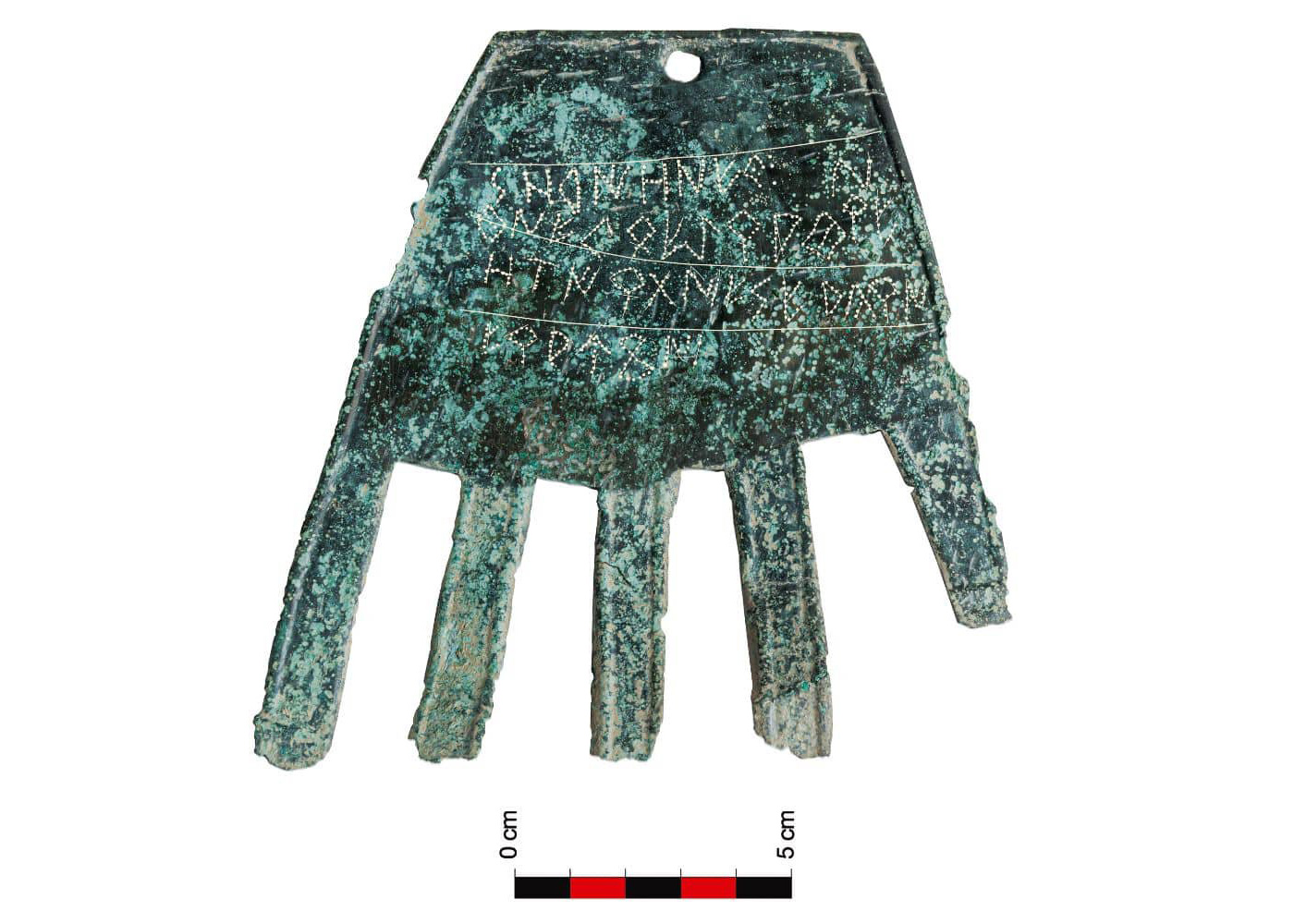This 2,000-Year-Old Inscription Changes Our Understanding of the Basque Language
The words are engraved on a bronze hand that archaeologists unearthed in northern Spain
Sarah Kuta
Daily Correspondent
November 18, 2022 4:49 p.m.

The Hand of Irulegi Courtesy of Aranzadi Science Society
Last summer, archaeologists in northern Spain were excited to unearth a flat, hand-shaped artifact made of bronze from a dig site not far from Pamplona.
But only later, when they began the careful restoration process, did the hand’s true significance come to light: After cleaning away the centuries-old sediment and dirt, researchers discovered lines of text inscribed across the object, which they’ve nicknamed the Hand of Irulegi.
Experts believe the words belong to a language that predates modern-day Basque, also known as Euskara. The first word on the hand, sorioneku, closely resembles the Basque word zorioneku, which means “fortunate.”

Archaeologists discovered the hand last year, but they did not fully appreciate its significance until they brushed away some of the sediment. Courtesy of Aranzadi Science Society
Archaeologists suspect the hand hung above the door of a mud-brick house some 2,000 years ago, likely as an “amulet of protection,” as Joseph Wilson writes for the Associated Press.
. . .
The Basque language has endured for centuries, despite many attempts throughout history to snuff it out. Experts consider Basque a “language isolate,” which means it is unrelated to any other world languages, including those spoken nearby, such as French and Spanish. Today, an estimated 700,000 still speak it.
More:
https://www.smithsonianmag.com/smart-news/a-2100-year-old-bronze-hand-may-help-rewrite-the-history-of-basque-language-180981153/

